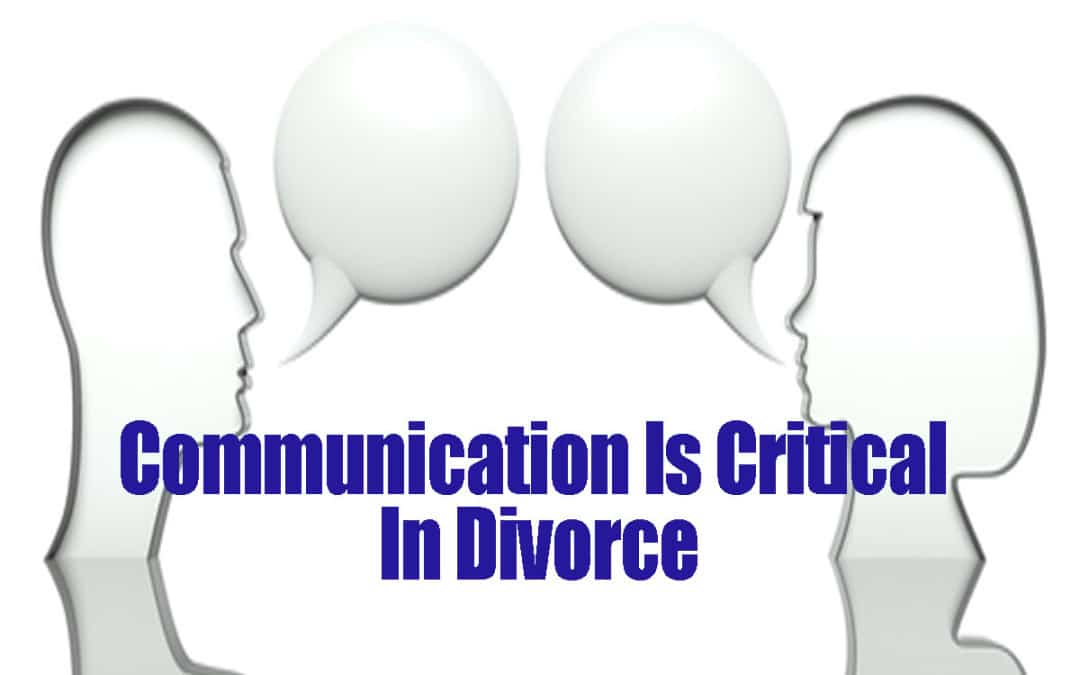As a Long Island divorce mediator and divorce attorney, I see that it is not uncommon for spouses going through a divorce in Nassau County and Suffolk County to struggle to communicate effectively with one another. Because there is often a great deal of stress involved in a divorce or separation, this exacerbates any already-existing communication struggles. Whether one partner has a hot temper or the other tends toward passive-aggressiveness, the emotional undertones of communications often interfere with the ability to reach agreements or compromise. If you are going through a divorce, separation, or mediation where there is conflict or where communication is strained, it is important that you become aware of how you are communicating with your spouse and how this might affect the outcome of the negotiations.
Observe & Adjust Your Communication Patterns to Achieve a More Positive Outcome
There is a reciprocal nature to communication in any relationship. Your communication will impact your spouse’s communication either positively or negatively, and vice versa. Take responsibility for how are you communicating your thoughts, feelings, and positions about the issues in your divorce, and you might realize that, by doing so, your spouse’s response just might change. This may not happen overnight, but with practice and patience, it is possible to change unhealthy or unhelpful patterns in your communication with your spouse.
Be Willing to Listen, Understand & Compromise
Recognize that stress and emotions are experienced on both sides of the divorce. While it may seem like the divorce is more painful or more unfair to you than it is to your spouse, communicating a sense of understanding can go a long way in the tone of the discussion, and may make it more likely that your spouse will listen to what you have to say. If you can demonstrate a willingness to listen, understand, or compromise, it becomes more likely that your spouse will do the same.
Try Not To React Emotionally
The ability to reach agreements about the terms of your divorce or separation is an essential factor in reducing stress and hostility throughout the divorce. Especially if you have children, finding a way to communicate calmly and respectfully can be helpful to all parties involved. One tip for being able to do so is to listen to what your spouse has to say, and be mindful not to react emotionally. Use active listening strategies like beginning your sentences with “I think” or “I feel,” which will help your language to come across as non-accusatory. Another strategy you can implement is to keep your statements brief and to the point, refraining from any threatening or inciting comments that are likely to cause an emotional reaction from your spouse.
E-Communication Can Be Taken the Wrong Way
Finally, be mindful of the medium of communication that you are using. While text messaging and e-mail are quick and easy to use, it can be difficult to convey your tone in a text message. The emotional content may be received the wrong way by your spouse, which could escalate a discussion in a way that you did not intend. Telephone calls or face-to-face meetings can allow for a more in-depth discussions of the issues you need to address in your divorce, but can be more likely to escalate quickly if there is conflict or domestic violence at issue. If there is an Order of Protection in place against either you or your spouse, be mindful of which types of communications are permitted. Also keep in mind that your spouse may record or save your communications, and it is possible that these conversations can later appear in the courtroom.
Be Concise and to the Point
Of course, if you find that you are not yet ready to speak to your spouse without getting overly angry or emotional, you might find a way to let them know that you are not ready to talk. Do this in a way that is non-antagonistic, and does not invite further discussion. Similarly, if your spouse has a “high-conflict” or volatile personality, you may wish to refrain from communicating as much as possible. Again, keep statements brief and to the point.
Your Behavior Now Sets the Tone for Communication Post Divorce
Your communication and behavior during the process of divorce will set the tone for your relationship with your spouse after divorce, which is especially important if you have children.
A Long Island Divorce Mediator Can Help With Communication
To learn more about Divorce Mediators on Long Island and how they can save you time, money and stress, visit this page: Divorce Mediator Long Island | Nassau County & Suffolk County. Many couples benefit from meeting with an experienced Long Island divorce mediator to assist them with negotiating divorce issues and guiding them through the process of divorce or separation. A Long Island divorce attorney or divorce mediator can provide you with counsel on how best to handle communication during your unique divorce, separation, or mediation. The experienced and compassionate divorce mediators and divorce attorneys at the Law Office of Robert. E. Hornberger, P.C. are experienced in divorce and separation cases in Nassau and Suffolk Counties, and have successfully helped Long Island couples through divorce mediation. Contact our office today at 631-923-1910to schedule your free consultation.
Download our Free New York Divorce Guide
Our 41-page “Guide to New York Divorce: What You Need to Know Before Hiring a Divorce Lawyer in New York” written by an experienced family law lawyer Long Island’s Robert E. Hornberger, Esq., provides you with real information on the divorce process and the laws it rests upon in the state of New York. This book will help give you a solid foundation upon which you can begin the process of making your family’s, life better. Download your Free Guide to New York Divorce here.














